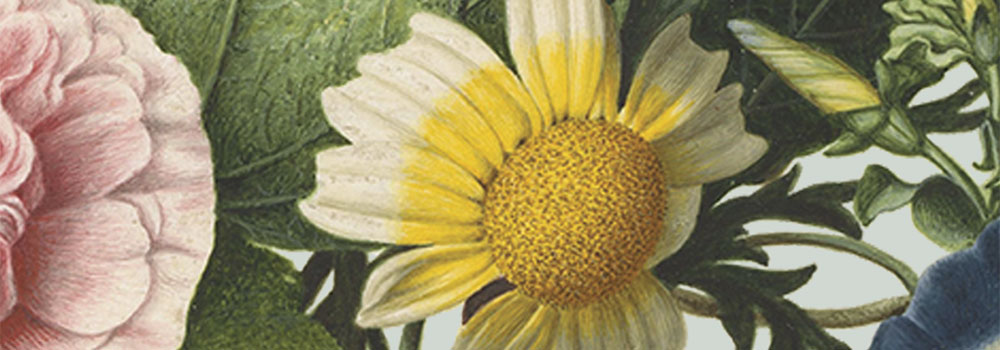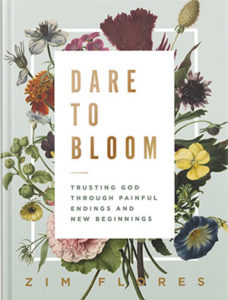
Dare to Bloom
Zim Flores has had her share of compelling new beginnings.
She grew up in a single-parent household with a strong Nigerian mom, Uchenna, who initially came to the United States for an arranged marriage but ultimately fled with her two kids in tow to escape an abusive husband. Zim and her brother, Chebem, were toddlers at the time. The trio moved around a lot but after some time landed back in Minnesota, the same state where they had originally fled. When Zim was nine, her mom, who is a nurse, moved the family to North Carolina because she got a job at Duke University.
Given such humble beginnings, it’s more than admirable how Zim, now thirty-two, has gone on to accomplish more in her twenties and early thirties than some people have in a lifetime. And some of her experiences are so unique, from cloning a gene at age nineteen and becoming the youngest Precinct Judge in North Carolina to living a year in India as a Henry Luce Scholar and becoming fluent in Hindi, she’s someone who isn’t afraid to step out on faith boldly. An entrepreneur at heart, she launched Travel Noire in 2013, a Boutique Travel company so successful that it landed her on Forbes’ 30 under 30 list in 2016. Also, Travel Noire was named one of the Most Innovative Companies in the World by Fast Company. Glamour magazine tapped her as one of “25 Young Women Changing the World.” Oprah selected her for the SuperSoul 100. But what surprised many is when she gave it all up and sold the company to Blavity. She wanted a new direction — to follow Christ.

Dare to Bloom, by Zim Flores
Zim grew up in the church, and many of her fondest memories as a child were the friendships and fellowship she had in her COGIC church community in Minnesota and later in North Carolina as a Baptist. But she was seeking more—a new beginning. After selling her business, the pain of starting anew led to an identity crisis and working through that is what spurred her to write Dare to Bloom. Zim, who is now married, lives in Chicago and has started a new FashTech company called Italicist, which uses computer vision technology to help women discover modest clothing. I talked to Zim about her faith and the struggles she went through, what it’s like to start all over when your identity is tied to a particular way of life, and the impact she hopes her new book will have on readers.
SN: What has your spiritual journey been like?
Zim Flores: One of the things that I remember most about growing up was my mom’s dedication to the church. Most of my fond memories of growing up in Minnesota were spending time in the church. I grew up COGIC (Church of God in Christ), and so every few days, we were either at the church or our pastor’s house. And I have so many amazing memories from that time.
When I moved to North Carolina, I was nine years old. My mom got a job at Duke University as a nurse, and we started going to a Baptist church. It was a change from the Midwest in a Minnesota, COGIC church. We were listening to contemporary Christian music, Amy Grant. And then we’d go down to the Baptist church, and it was a little bit different. That was a lot for me to get used to, but it colored my spiritual journey as well. I joined the choir, and I was at a Baptist church throughout college.
Moving to India, it was really hard for me to find a church, so I just streamed my online services and strengthened my relationship with God. I wasn’t tied to any community after moving back to the States, but I very much kind of held my relationship with God pretty close. Around 2012, I was floating around. I had drifted away from my relationship with God. I had started Travel Noire. There were remnants there, but it wasn’t as strong as when I was living in India.
I remember moving to Chicago. I didn’t know anybody. I knew one person. And I remember it was a season where I was so desperate. I was desperate for God. I was desperate for community. I started going to meet up groups to connect with other people and to get a body. And so I asked my boyfriend at the time, who is my husband now, if he knew of a church that I could go to. It was a church in Brookfield [Illinois] and my first time stepping foot in a Pentecostal church. That was another really interesting experience, a really special experience. And so, I got re-baptized there, and my walk has grown beyond my wildest dreams.
SN: Your mom is a strong woman to do what she did with two small children. What have you learned from her about faith?
ZF: Back then, as a child, you don’t know these things. You just [hear], “All right, we’re going to a new place. Get in the car and let’s go.” Now, when I have these conversations with her, I hear how much pain she has about those particular periods of her life. Sometimes she’ll even shed a tear. It’s like when you deal with trauma in that way, it stays with you forever. There is an element of hope that’s there because you know that you wouldn’t be where you are without that particular trauma. And then there’s also the recognition that God’s grace was there in that season.
When I think about the stories that my mom tells us, I’m like, man, you just left. You left with my brother and me. We got on a Greyhound bus, and we went to California. I mean, you had to have an incredible amount of faith even to think that everything was going to be okay. I’m still having these conversations with her because our parents’ stories are so fascinating; just as colorful and as busy as our lives are today is how colorful, and busy their lives were then. And so sitting and learning from her and understanding what it took for her to go literally from place to place, but also from faith to faith and knowing that she was going to be covered, that we were going to be covered and that she kept us in a community of believers when we were growing up, because she, as a single mother, needed the support and help. And that’s where the church came in.
SN: And so, what was your childhood like?
ZF: When I think back to my childhood, it was the most beautiful experience that I had ever had. I was always around people. I never knew lack, even though my mom didn’t have much. I remember growing up, and we went to, I think, Walmart. She didn’t have enough to buy me the scissors that I needed for a class. Now scissors, back in the nineties, might’ve been $2 or something along those lines, maybe even cheaper, but she didn’t have enough money for that. That’s the one instance that I clearly remember. Because I was like, “I want to get everything for my school.”
I remember the day that we couldn’t afford those scissors, but she did all that she could to shield us from all of the craziness in her own life. And that, for me, mirrors faith. You know that everything is going to be okay, and you don’t let on. You don’t let other people know who don’t need to know what’s going on with you. You keep your relationship with God as strong as you possibly can. And you lean on those in the church who are there to help.
SN:Tell us what you were going through when you sold Travel Noire and how it inspired you to write Dare to Bloom.
ZF: It was such a period of hardship for me because I’m so used to being in control of everything, or as much of the things that I can be in control of. But when I lost control of this business, it felt like I didn’t have control. I dealt with a lot of shame and many things relating to my identity and who I am. Some of the friends that I had because of Travel Noire are no longer my friends. So, does that mean there’s something wrong with me, or does that mean that I’m just moving on to this new chapter? And so, there are a lot of really hard-won battles. I guess, some of which were in my mind, that I had to deal with due to this business no longer being a part of who I am. Or me even mischaracterizing this business and saying this business is who I am. How successful it is, is a reflection of how successful I am. And I think that a lot of us get it so wrong when we start to think that way.
I hope that those who read the book can be reminded that our identity is always safe with God. Even when the world tells us that we are this kind of person or that kind of person, we have sixty-six books that tell us the kind of person we are. We are made in the image of God. We are his image-bearers. He has put something very special within all of us. And if we only knew how special we were and we are, I think that, that would make the process of starting over so much easier for a lot of people.
Dare to Bloom is available in the UMI Bookstore.
